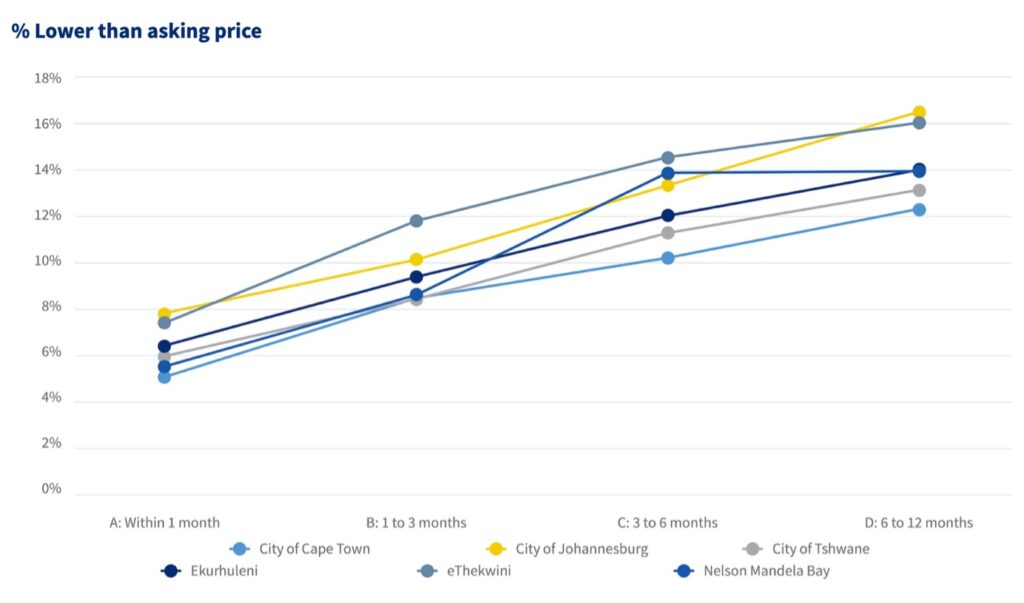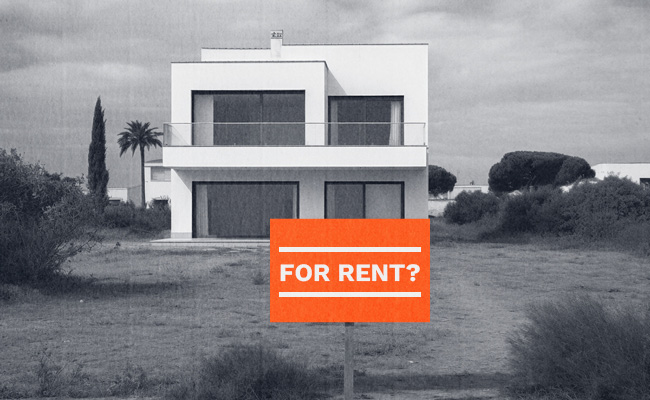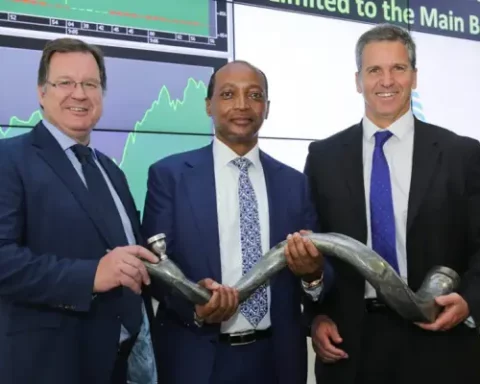There is a certain comfort in owning bricks and mortar rather than paper assets like shares or bonds, which experience daily – and sometimes wild – fluctuations. The stability of property ownership, coupled with the potential for rental income, often makes it seem like a solid investment choice.
But is it?
Real estate takes time to offload should circumstances change, says Gareth Collier, a director at wealth management firm Firecrest. Also, South African law is heavily skewed to favour tenants over landlords.
Tax is another key drawback. For those in the highest income bracket, rental income can be taxed at the marginal tax rate of up to 45%, while large capital appreciation on a sale will only receive the annual R40,000 exclusion relief, with the net capital gain included at your marginal income tax rate. On the flipside, capital gains tax on unit trust investments is capped at 18%.
There are some advantages. Unlike unit trusts or retirement annuities, you can borrow against property, says Collier. As you pay off the loan and the property’s value increases, you can use that equity to buy other properties.
The downside to that, however, is the opportunity cost of time as you wait for the valuation to increase, plus the hassle of managing the property, tenants, maintenance and hidden or unexpected expenses.
South Africa’s sluggish economy, high unemployment rate, illegal immigration, urban decay, mismanagement and corruption at local governments have tempered average house price growth. Prices adjusted for inflation have dropped since 2016, despite some respite in 2021 during Covid, according to FNB’s house price index. That year inflation averaged 3.3% – its lowest in 16 years.
However, opportunities remain for those who understand the market.
Sellers are often willing to negotiate, with discounts of about 16% in Joburg and eThekwini, while those in Cape Town and the City of Tshwane are nearest to their asking prices, according to data compiled by Lightstone.

Location, location, location
“Location is everything,” says Sean Kelly of Parity Wealth Managers. He did a quick analysis of whether buy-to-let property or offshore stocks offer better returns, as clients frequently pose the question.
The key takeaway for him is that global equities are more liquid, historically perform better, and are easier to manage.
In his comparison, published on Moneyweb, Kelly highlights properties in Stellenbosch, where values have increased at an annual growth rate of about 6.28% a year since 2016. Demand is driven by students, a lack of a limited land availability and the region’s cultural appeal.
By his scenario analysis, rental yields in Stellenbosch – the amount of money you earn as a percentage of the property’s value – can vary between 11.53% and 16.97% before considering taxes.
By comparison, the MSCI ACWI, a global benchmark measuring large- and mid-cap stocks across 23 developed countries, has declined only four times in the past 21 years, while the rand has depreciated 15 of those years against the dollar (increasing the value of overseas investments).
The average return in rand by investing in the index would have been 13.89% over 10 years. A fixed-income index compiled by S&P Global made up of South African government bonds returned an annualised 8.3% over the past 10 years.
“We’re not property brokers or real estate investors,” Kelly says. “As traditional financial investors, we concentrate on stocks, bonds, and structured property investments like real estate investment trusts [Reits] instead of individual properties. Reits offer exposure to real estate without the complications of direct property ownership.”
Kelly’s firm advises high net worth clients to maximise offshore investment allowances, citing concerns over US-South Africa trade relations, government instability, and shifting interest rate policies.
A weak economy fuels rental demand, as many individuals cannot afford to buy property. Targeting developments in high-demand areas, such as student accommodation or single-occupancy apartments in urban centres, may yield attractive returns, according to Investec.
Still, investors should exercise caution. Vetting tenants and securing guarantees, often two months’ rent as a deposit where possible, can mitigate risks.
Rental demand
Rental growth outpaced inflation for the first time in nearly five years in 2024, rising by 5.2% year on year (while headline inflation rose 4.4%), says Grant Smee, the CEO of Only Realty Property Group.
Now is a good time to secure a property that “covers the bills and can potentially yield additional income”, he adds.
All provinces experienced rental price increases, with the North West narrowly beating the Western Cape, the country’s most expensive region, by 10 basis points with a rate of 9.7%. Gauteng and KwaZulu-Natal registered some of the lowest growth rates, Smee says.
“Buy-to-let investors are on the rise – particularly in the Western Cape, where there is high demand,” he explains.
Semigration trends, competition from foreign buyers, and constrained supply continue to support Cape Town’s rental market. The affordability gap keeps more people renting, creating a favourable environment for buy-to-let investors, says Smee.
The rise of short-term rental platforms such as Airbnb has opened new opportunities for investors with the possibility of generating higher returns. However, investors must factor in additional costs such as furnishing and ongoing maintenance. Also consider that South Africa has threatened to regulate short-term rental platforms due to their impact on housing affordability, particularly in Cape Town.
The shift towards a more flexible, asset-light lifestyle – fuelled by the sharing economy and a “nomad” work culture, where employees or business owners move from one location to the next – supports demand for short-term rentals.
A matter of perception
Rhys Dyer, the CEO of home-loan originator ooba, says 39% of applications in December in Cape Town were for investment properties, while about 50% of granted home loans were at 100% loan-to-value, meaning the banks saw value in them.
Firecrest’s Collier says many of his clients are entrepreneurs who are comfortable with taking risks, so would rather consider private equity or investing in start-ups than buy-to-let property.
“Once we’ve ticked all the boxes – retirement planning, discretionary savings, and tax-efficient investing – clients often look to private equity,” says Collier. “It’s a natural transition. They recognise that property locks up capital with slow appreciation, while investing in a growing company can yield exponential returns.”
In his experience, it is mostly salaried high earners who tend to favour property due to its perceived lower risk.
Real estate forces better savings habits because it instils a better sense of commitment; people want to avoid the property being repossessed and, ultimately, they want to benefit from the long-term appreciation in its value, he says. “Right at the end, they have an asset they can either live in, sell, or leverage.”
It’s often about perception and their investment goals, says Collier.
“During Covid, when markets initially plunged, investors saw those losses in black and white. Meanwhile, property owners could see their physical property investments and nothing appeared different,” he explains. “This psychological effect makes real estate feel safer, even if its value has declined. Yet, investors forgot how quickly markets rebounded.”
Ultimately, Collier says his role is to be devil’s advocate to his clients. “I’m not telling them what to do. I don’t want them to commit to something and then have remorse two years later because we didn’t have this conversation because it was a little bit uncomfortable.”
Sign up to Currency’s weekly newsletters to receive your own bulletin of weekday news and weekend treats. Register here.









